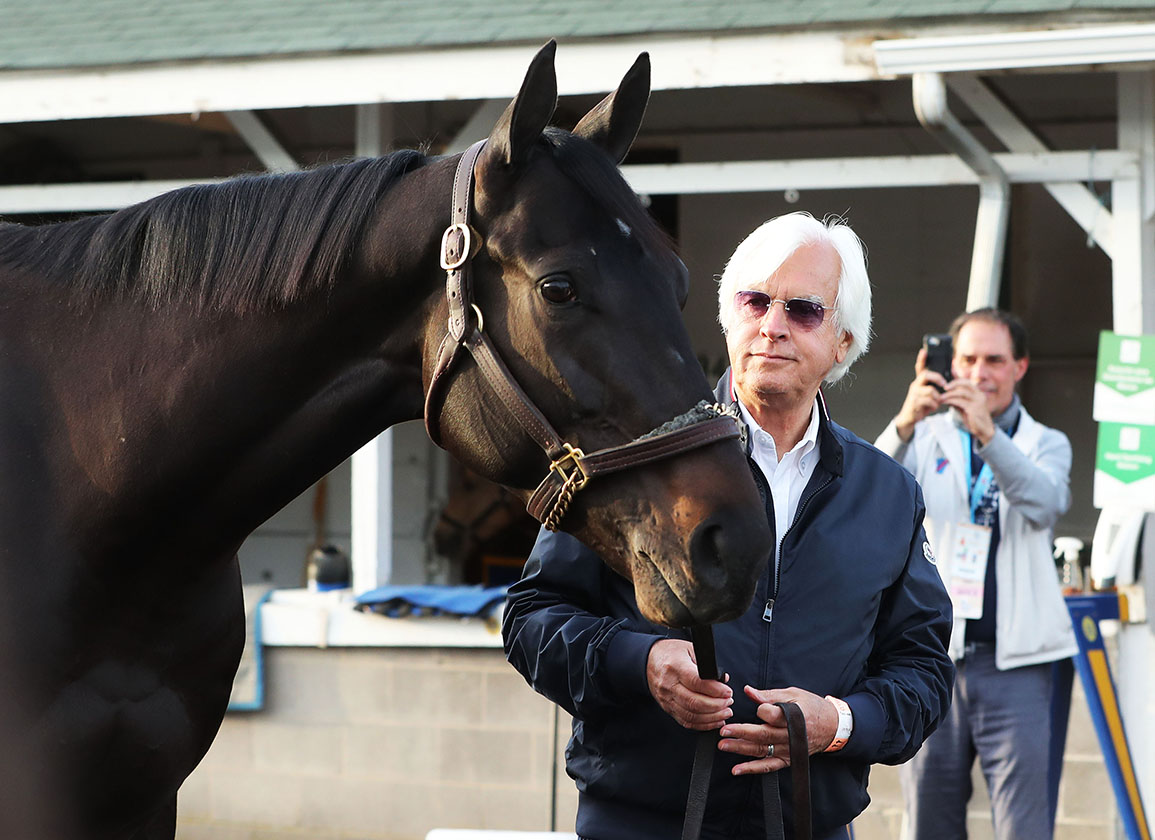By Bill Finley
Lawyers representing the Kentucky Horse Racing Commission (KHRC) and Bob Baffert squared off before Franklin Circuit County Judge Thomas Wingate Friday morning in a dispute over whether or not additional urine samples from Medina Spirit (Protonico) from the GI Kentucky Derby should be made available to the defendants' lawyers and, if so, in what quantity?
The Baffert team has asked for an additional urine sample because it believes further testing can prove that the drug in question, Betamethasone, found its way into Medina Spirit through an ointment used to clear up a skin condition and not through an injection. The KHRC argued that it needs to retain what's left of Medina Spirit's urine sample in case there is a need for further testing on its part or some sort of unforeseen problem related to testing.
Wingate asked the two sides to negotiate and come to a compromise. He said that if the sides could not agree, he would issue a ruling Wednesday. Wingate made it clear that he wants at least some of the urine to be handed over to the Baffert team.
“You sort of see where I am going and I think that if you come up with something more palatable and are afraid of how I am going to rule then do it. Fair enough?” Wingate said.
The hearing was held over Zoom and, at times, only Wingate could be heard clearly. For the most part, the statements made by KHRC attorney Jennifer Wolsing were inaudible.
The lawyers representing Baffert and Medina Spirit's owner, Amr Zedan, are building a case that the drug got into the colt's system through the ointment. They have said that would be the sort of mitigating circumstances needed to conclude that there was no attempt to improve the horse's performance, reason enough for Baffert to be exonerated and the original order of the Kentucky Derby to be upheld.
Also at issue is whether or not it matters where the Betamethasone came from. The courts and the KHRC might ultimately decide that is irrelevant, that the very presence of the drug is enough to warrant a disqualification, no matter the source of the drug.
“The rules of the Kentucky Horse Racing Commission are clear,” said Baffert's lawyer Craig Robertson. “Some 63 times in their rules it states that a trainer is allowed to present mitigating circumstances in consideration of a penalty. Proving that this was an ointment and it did not come from an injection is, at the bare minimum, a mitigating circumstance. We should be allowed and should be entitled to present that evidence and obtain that evidence to scientifically prove these facts.”
Robertson also touched upon public perceptions involving this case and the potential damage that could be done to Baffert's reputation.
“From a public perception perspective, my client has been excoriated unfairly and publicly about this and he's been accused of injecting this horse to cheat to win the Kentucky Derby,” Robertson said. “That this is a banned substance. That this is doping. None of which is true. We have an opportunity to get scientific evidence to prove that it's not true and they're trying to keep us from doing that. That's not fair.”
Not a subscriber? Click here to sign up for the daily PDF or alerts.






